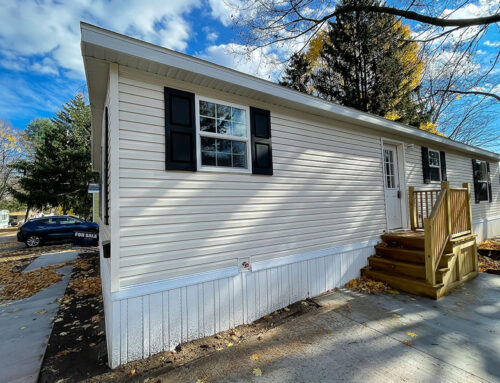My wife, Anne, and I were at a dinner party last week down near Rittenhouse Square in which we found ourselves at the center of a debate on whether investing in real estate after retirement was wise or not. As long-time investors who got started later in life than most, we certainly think so. And, we don’t agree that our success is an anomaly, which was the prevailing opinion at the party. But, there was one couple, Larry and Linda, who approached us later in the evening to say that they were making the same plans that we’d made years earlier. They were so close to retiring, in fact, that they were already looking forward to buying houses from the Philadelphia Sheriff Sale—one option they’d heard was a great lead for good deals. I told them we knew the sale well and could give them the rundown right then and there on how it works and if it’s worth it.
How the Philadelphia Sheriff Sale Works for Buying Investment Houses
Knowing that Larry and Linda were interested in starting a business in retirement helped us feel a kinship toward them and it fueled our desire to help them find real estate investment deals. Of course, it’s not really surprising that our new friends had heard that the Philadelphia Sheriff Sale was where they could grab a few investment houses easily. Many investors, especially less experienced ones, often believe that buying foreclosure auction homes have the best potential for providing the strongest returns. Starting bids at these sales are typically very low. So, if you can buy a house cheaply and keep your renovation costs down, you could theoretically win a big ROI. Unfortunately, getting a good deal from the Sheriff’s Sale is not quite as easy as that. And, we wanted Larry and Linda—and you—to know why.
In case you’re not familiar with the auctions, the Philadelphia Sheriff’s Office conducts two types of sales on real estate: a tax sale and a judicial mortgage foreclosure sale. Both auctions take place in the Medical Arts Building on Market Street and abide by the same sale terms. The judicial mortgage foreclosure sale, however, happens on the first Tuesday of every month, whereas the tax sale is scheduled four times a month and on a quarterly basis. You can find information about the properties being sold at each sale, including their current market value and opening bid amounts, on the Sheriff’s website and in publications such as the Legal Intelligencer.
You are required to register for each sale and to come prepared to win the bid. That means arriving with a certified check or money order made out to the Sheriff of Philadelphia for 10% of your maximum bid on a property or $600—whichever is higher—as your deposit. Since the lowest bids start at is $600, and go up in $100 increments, you can expect to pay a decent chunk down if you win. And, since these auctions tend to be highly attended, you can also expect the final sale price on most of these homes to go up.
If you do win the property, you have 30 days to close on it—which is considerably more than what many other sheriff sales around the state allow. But, because you won’t be guaranteed entry into the property to work in a home inspection before you bid or after you win, 30 days may be just enough time for you to want to back out. After all, if you can’t accurately assess all the repairs that need to be done and correctly calculate the costs of doing them, you’re risking your potential returns on an apparent fixer-upper that could actually be a major financial downer. The problem, though, is that if you do back out you’re probably not going to be able to take your deposit with you. Deposits at these auctions are almost always non-refundable.
Unfortunately, should you decide to take the risk and move forward with closing on a tax sale property, it doesn’t technically become yours just yet. The owners of homes sold at tax sales have up to nine months to redeem the property by getting current on their taxes and reimbursing you for the sale—and, you can’t say no. That makes starting any improvements on the home financially foolish if the owner of record has first dibs on enjoying them. The Sheriff’s Office even warns as much, especially since the previous owner does not have to repay you for the rehab.
You won’t encounter this particular issue with the judicial mortgage foreclosure sale, but the homes sold through this auction come with a lot of problems that are similar to those sold during the tax sale. In both cases, the houses are apt to be in bad shape since homeowners who fall behind on their mortgage or property taxes aren’t usually capable of maintaining the home either. So, though your cost to buy may have turned out low, your price to renovate could run awfully high—above and beyond any potential returns. And, if there are occupants inside the property—whether they are the former owners, tenants, or squatters—you inherit the responsibility and expense of evicting them. These homes come with no guarantees, and the Philadelphia Sheriff’s Office is the first to say so.
Still, since so little is needed to qualify for bidding at these sales—a government-issued ID and proof that you are tax compliant—encourages a lot of investor competition. Of course, the low starting bids and frequent misconceptions about how the auction works don’t hurt. But, just because everyone else is doing it doesn’t mean that you should. In fact, the final sales price for these homes can get bid up beyond what makes good sense by everyone in attendance, so you might want to stop before you get started. There are already too many risks associated with the purchase of these properties without having to add outspending your competition—and your budget—to the list.
So, as a Pennsylvania real estate investor who needs good leads on investment properties in Philadelphia, where do you turn if not to auctions? While there are a variety of methods available to real estate investors for generating leads, there are few that bring distressed homeowners to you before their homes end up with the Sheriff. But, I happen to know of one.
Buy Better Investment Houses Directly From Their Owners
My wife and I were much like Larry and Linda when we set out to make second careers by investing in real estate. And, we’d also heard that the Philadelphia Sheriff’s Sale was a good place to start. Unfortunately, we bought a house that was later redeemed, and, because our money was tied up for months in that particular investment, we couldn’t take advantage of other opportunities. But, the waiting taught us a good lesson. Neither of us liked how it felt to acquire deals at an auction, which is to say that we wanted to find a way to buy homes directly from their owners before they were sent to the sheriff.
We found our way by becoming independently owned and operated HomeVestors® franchisees. Thanks to HomeVestors® marketing tools and resources, like their widely-recognized “We Buy Ugly Houses®” ad campaign, motivated sellers of distressed homes throughout Philadelphia call upon Anne and me—and other franchisees like us—to buy their homes directly. In fact, HomeVestors® marketing strategy is so successful that it’s helped franchisees in 47 states and D.C. buy more than 140,000 houses since 1996. And, it’s helped a lot of homeowners avoid losing their homes to an auction, too.
Invest in your future as a real estate investor by becoming a franchisee today. Call HomeVestors® when you’re ready to get better, more qualified leads on some of the best deals.
Each franchise office is independently owned and operated.
Contact
"*" indicates required fields





